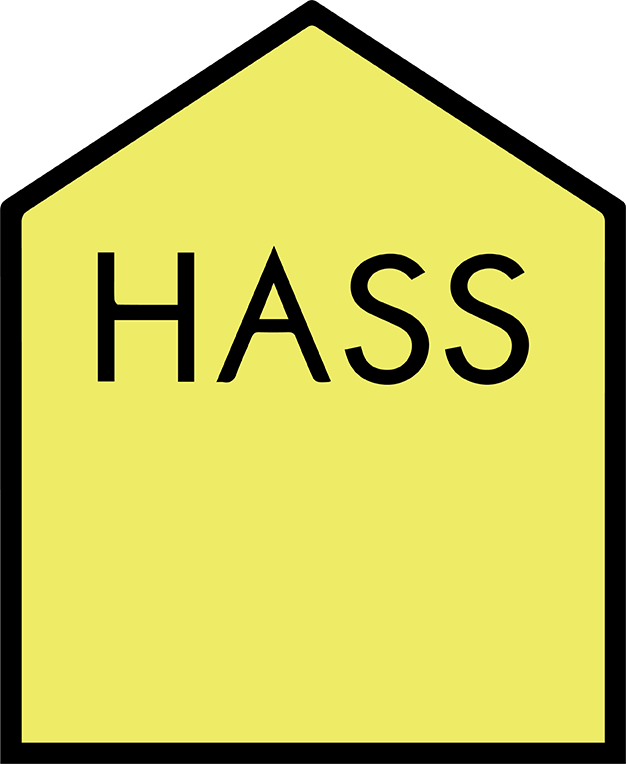Food waste is a climate problem with a local face. When plate scraps and kitchen trimmings rot in landfills, they make methane — a greenhouse gas many times more powerful than CO₂ over short timeframes. Turning that food waste into compost instead of sending it to a landfill avoids methane, closes nutrient loops for agriculture, and lowers waste-handling costs.
Companies across Thailand and the globe are under increasing pressure to reduce their environmental footprint, comply with regulations, and demonstrate corporate responsibility.
One area where businesses can make a tangible impact is food waste management. Food waste not only contributes to landfill expansion but also releases methane, a potent greenhouse gas that accelerates climate change.
For businesses looking to tackle this problem head-on, commercial food waste composters are emerging as a viable solution. Not only do they convert organic waste into nutrient-rich compost, but they also present a potential avenue for earning carbon credits — a financial and environmental incentive for companies committed to reducing greenhouse gas emissions.
At HASS Thailand, we have seen how integrating commercial composters can transform food waste management while aligning with carbon credit schemes.
Understanding Carbon Credits
Before exploring the connection between commercial composters and carbon credits, it’s essential to understand what carbon credits are.
A carbon credit represents a reduction or removal of one metric tonne of carbon dioxide (CO₂) or an equivalent amount of another greenhouse gas from the atmosphere. Businesses can earn carbon credits by implementing projects or technologies that reduce emissions, which they can then sell or trade to offset their own carbon footprint.
Globally, carbon credit schemes are designed to encourage sustainable practices by attaching a tangible financial value to reducing greenhouse gas emissions. In Thailand, companies participating in voluntary carbon markets or national environmental programs can leverage innovative solutions like food waste composters to generate credits.
The Environmental Impact of Food Waste
Food waste is a major contributor to greenhouse gas emissions. When discarded food ends up in landfills, it decomposes anaerobically (without oxygen) and produces methane (CH₄) — a gas that is roughly 28 times more potent than CO₂ over a 100-year period. In commercial settings, such as restaurants, hotels, hospitals, and food processing facilities, the volume of organic waste is substantial, making it a critical area for intervention.
By diverting food waste from landfills and processing it through composters, businesses can:
- Reduce methane emissions.
- Lower transportation-related emissions by reducing waste hauling.
- Generate compost that can enrich soil and support local agriculture, which indirectly contributes to carbon sequestration.
These benefits position commercial composters as an attractive tool for businesses looking to both reduce emissions and claim carbon credits.
How Commercial Food Waste Composters Work
Commercial food waste composters are designed to process large quantities of organic waste quickly and efficiently. Unlike traditional composting methods that can take months, modern composters can transform food waste into stable compost in a matter of hours or days.
Key features of commercial composters include:
- High-capacity machines that can handle hundreds of kilograms of waste per day.
- Microbe and Aerobic decomposition systems that minimise methane production by introducing microbes and oxygen during composting.
- Automated monitoring and controls to ensure consistent temperature, moisture, and airflow for optimal decomposition.
- Nutrient-rich output, which can be used as a soil conditioner or sold commercially.
At HASS Thailand, our commercial composters are designed for businesses of all sizes, from restaurants to large-scale food producers. We have a wide range of commercial food waste composters that can handle from 10kg to 5 tons of food waste per day.
By capturing the carbon savings from diverting food waste, businesses can participate in verified carbon credit programs
Linking Composting to Carbon Credits
The connection between food waste composters and carbon credits lies in emission reduction. When organic waste is diverted from a landfill and processed aerobically in a commercial composter, methane emissions are significantly reduced. This reduction can be quantified and converted into carbon credits under approved carbon accounting standards.
Here’s a simplified breakdown of the process:
- Calculate baseline emissions: Determine the amount of methane that would have been generated if the food waste had gone to a landfill. This involves measuring the weight of food waste and applying standard emission factors.
- Measure emission reductions: Using your commercial composter, calculate the methane that is no longer emitted due to aerobic decomposition.
- Verification: Carbon credits require validation by a third-party auditor or certification body to ensure accuracy and compliance with carbon credit standards.
- Registration: Once verified, the emission reductions can be converted into carbon credits and sold or traded in carbon markets.
The resulting carbon credits provide both an environmental benefit and a potential revenue stream, making commercial composters a win-win investment for sustainability-conscious businesses.
Financial and Operational Benefits for Businesses
Adopting commercial food waste composters offers multiple advantages beyond carbon credits.
1. Cost Savings on Waste Disposal
Food waste disposal in Thailand often involves fees for landfill tipping or municipal collection services. By reducing the volume of waste sent to landfills, businesses can save significantly on disposal costs.
2. New Revenue Streams
Verified carbon credits can be sold to other companies looking to offset their emissions. In addition, nutrient-rich compost can be sold to agricultural businesses or landscaping companies, creating an additional income source.
3. Enhanced Corporate Reputation
Sustainability initiatives resonate with environmentally conscious consumers. Companies that actively manage their food waste and participate in carbon credit schemes demonstrate leadership in corporate social responsibility (CSR), potentially attracting more customers and partners.
4. Regulatory Compliance and Risk Mitigation
While Thailand’s carbon market is still developing, national and local authorities are increasingly promoting sustainable waste management practices. Businesses that implement commercial composting solutions early are well-positioned to comply with future regulations and incentives.
Steps for Earning Carbon Credits with HASS Thailand’s Composters
At HASS Thailand, we not only supply high-quality composters — we also help businesses unlock carbon credit opportunities through verified emission reduction programs. Here’s how the process works in detail:
- Assess Food Waste Volume
- Conduct a food waste audit to measure your daily, weekly, and annual waste output.
- Identify the types of organic waste being produced (e.g., kitchen scraps, expired stock, leftovers).
This data is crucial for calculating your baseline methane emissions — the amount your business would release if the waste went to landfill instead of composting.
- Select the Right Composter
- Choose a HASS Thailand commercial composter that matches your waste generation levels. Our machines range from 10kg to 5 tons per day, suitable for restaurants, hotels, factories, and hospitals.
- The selected model determines your total potential carbon reduction capacity, as larger systems divert more methane-emitting waste.
- Implement a Waste Management Plan
- Train kitchen and operations staff to separate organic waste at the source.
- Establish a collection and composting schedule to ensure consistent feedstock for the composter.
- Record every batch processed — including dates, input weight, and compost output — to build verifiable data.
- Monitor and Record Data
Use the composter’s digital monitoring system (if available) or manual logs to track:
- Daily waste input
- Composting duration and temperature
- Final compost volume and usage
- Estimate methane avoidance using approved methodologies such as the Clean Development Mechanism (CDM) or Verra’s VCS Methodology for Composting.
This data becomes the foundation for your carbon credit application.
- Engage Certification Bodies
- Partner with a carbon credit consultant or project developer experienced in waste-to-compost projects.
- They’ll help prepare the Project Design Document (PDD), outlining your emission reduction methodology, data collection, and monitoring plan.
- Submit your project to a certification body (such as Verra, Gold Standard, or Thailand Greenhouse Gas Management Organization – TGO).
- Undergo third-party verification by an accredited auditor to confirm your emission reductions are genuine and measurable.
- Register and Issue Carbon Credits
- Once verified, your project can be registered with the chosen carbon credit scheme.
- The certifier will issue Verified Emission Reductions (VERs) or Certified Emission Reductions (CERs) — each representing 1 ton of CO₂-equivalent avoided.
- These credits can then be held, traded, or sold on voluntary or compliance carbon markets.
- Maximise Carbon Credit Value
Businesses can:
- Offset their own emissions to become carbon neutral.
- Sell credits to other organisations seeking offsets.
- Promote results in sustainability reports, ESG statements, and marketing materials.
- Combining composting with other green initiatives — such as solar power or water recycling — can further enhance your Corporate Social Responsibility (CSR) and Environmental, Social, and Governance (ESG) profile.
Challenges and Considerations
While commercial food waste composters offer clear benefits, there are challenges businesses should consider:
- Initial Investment Costs: High-capacity composters require upfront capital. However, this can be offset by long-term savings in waste disposal and revenue from carbon credits.
- Operational Knowledge: Staff training is essential to ensure waste segregation, machine operation, and consistent compost quality.
- Carbon Credit Verification: Navigating verification standards and carbon markets can be complex, requiring expert guidance.
- Regulatory Landscape: Thailand’s carbon credit market is still evolving, and businesses must stay informed about national guidelines and incentives.
Despite these challenges, the long-term environmental, operational, and financial benefits make commercial composting a compelling solution for forward-thinking businesses.
The Future of Food Waste Composting and Carbon Credits in Thailand
As Thailand continues to strengthen its sustainability policies and carbon market frameworks, commercial food waste composters will play an increasingly important role.
Key trends include:
- Expansion of voluntary carbon markets, allowing more businesses to trade carbon credits.
- Government incentives for sustainable waste management projects.
- Technological innovation, making composters faster, more efficient, and easier to operate.
- Integration with corporate sustainability programs, linking composting efforts directly to carbon neutrality goals.
At HASS Thailand, we are committed to supporting businesses through this transition by providing innovative, high-capacity composting solutions and guidance on maximising carbon credit opportunities.
Conclusion
Commercial food waste composters offer a powerful solution for businesses looking to tackle food waste, reduce greenhouse gas emissions, and explore carbon credit opportunities. By diverting organic waste from landfills and turning it into nutrient-rich compost, companies can achieve measurable environmental benefits while enhancing operational efficiency and corporate reputation.
With the right planning, equipment, and verification processes, businesses in Thailand can leverage HASS Thailand’s commercial composters to generate carbon credits and take a tangible step toward sustainability leadership.
Investing in a commercial composter is more than just a waste management decision — it’s a strategic move that aligns environmental responsibility with financial and operational gains.
For businesses seeking to reduce their carbon footprint and unlock the potential of carbon credits, HASS Thailand provides the expertise, technology, and guidance to make sustainable food waste management a reality.


